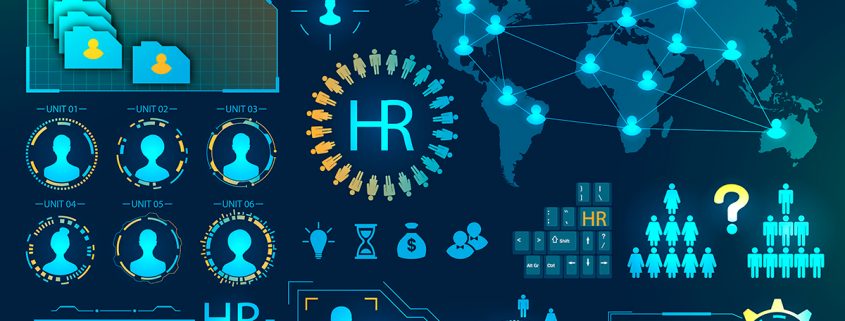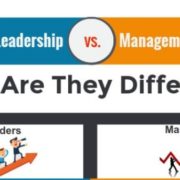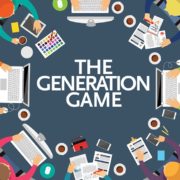The Rise of Analytics in HR
Back in 2017, in Deloitte’s Human Capital Trends report, it has been revealed that people analytics was a top trend and a top priority for every respectable organisation. 71% of companies that were surveyed for the report have stated that people analytics is of great priority.
It has become more and more evident that data analytics in HR have become to matter more than ever before. Although people skills remain a top priority for every HR manager, there are numerous companies and non-profit organisations that are using data and are calculating everything from talent acquisition and productivity to retention and job structure. This shift towards data and analytics is saving businesses tremendous amounts of money.
Furthermore, the data which is being collected is being used by analytics experts and HR managers alike to study and learn more about employee behaviour, overtime patterns, how people relate with each other in the workplace, time management – all of this to better understand their workforce and how to boost the company’s performance and production.
Oracle is another company that has been doing its very own global survey in order to better grasp where HR is in terms of analytical functionality within an organisation. Their findings have revealed that HR departments are one of the most analytical in various companies, and it’s even pulling ahead a bit in relation to the Finance department. Some HR departments are actually using the latest technology in predictive and prescriptive models and, in some specific cases, artificial intelligence.
This is an enormous shift from ten years ago when studies began to arise in talent analytics. At that time, the only player that was using sophisticated HR analytics was Google. Back in those days, there was a ‘normal’ amount of reporting that was happening, but there wasn’t anyone designated to predict. A minority of HR organisations even had an analytics employee. To better put things into perspective, ‘HR analytics’ was typically understood as a conversation about the total number of employees the company had and how to better measure the employees’ level of engagement.
Even before the surveys from Deloitte or Oracle came out, there was a definite shift in trends in today’s modern organisation. Most multinational corporations have a few employees, specifically, to just analyse data. Nowadays, there are various conferences around the world tailored to this specific topic. Organisations now alter or adapt the way they do business in order to shape growth, engagement and other variables which are considered key.
The aforementioned Oracle survey involved 1,510 respondents from 5 continents and 23 countries. Through these respondents, there were senior managers, vice-presidents and directors from HR (61%), 28% from Finance and 10% from general management. It is also important to know that all executives that have participated were from businesses with at least 100 million dollars in revenue. The detailed statistics are as follows:
- 51% of HR respondents could perform predictive or prescriptive analytics, by contrast only 37% of Finance respondents could tackle these advanced forms of analytics.
- 89% were in agreement with the statement “My HR function is highly skilled at using data to determine future workforce plans currently (e.g. talent needed),” and only 1% disagreed.
- 94% of respondents agreed that “We are able to predict the likelihood of turnover in critical roles with a high degree of confidence currently.”
- 94% also concurred that “We have accurate, real-time insight into our employees’ career development goals currently.”
- When respondents answered this question “Which of the following analytics are you using?” “artificial intelligence” had the highest response rate, 31%. When asked to further explain how they used AI, the most common answer was “identifying at-risk talent through attrition modelling,” “predicting high-performing recruits,” and “sourcing best-fit candidates with resume analysis.”
So why is it that HR departments have become more ‘natural’ in their use of advanced analytics than Finance, which is theoretically work based around numbers? In most cases, this is because Finance organisations and the respective CFOs that have lead them found it extremely difficult to move from reporting and descriptive analytics towards advanced analytics that are being used nowadays.
The reason why Oracle has chosen to survey both the HR and Finance executives and managers is due to the simple fact that there has been a serious increase in their need to cooperate. Given the fact that most often than not employee expenditures represent a company’s highest costs and because an organisation’s financial position will always guide the size of the business, there is a clear need for symbiosis. Fortunately, the Oracle survey has found that high levels of collaboration are already in place. In the same survey, it has been discovered that 82% of respondents agreed and strongly agreed, with only 5% of them disagreeing, that “Integrating HR and Finance data is a top priority for us this year.” However, not everything is pitch perfect. Numerous interviews conducted post-survey have brought to light the fact that there are many more opportunities to be seized further than sharing of data and cooperating on analytics.
In conclusion, it would be stretch to think that analytics will solve HR’s every problem, but they can definitely provide a deeper understanding of every department within an organisation, help train HR specialists into developing projects that can enhance talent investments whilst also monitoring and developing recruitment, engagement, development, retention, productivity and many more workplace activities.
There is a real value in providing companies with the tools to carry out regular organisational assessments and this is where Great People Inside comes to your aid. Our online platform offers the best solutions and tools for your company to thrive in every type of industry and any possible situation your organisation may find itself. In terms of lowering your employee turnover rates, we recommend our GR8 Full Spectrum assessment for hiring and 360° Survey for retention. Finding the right talent, the best fit for the job and your organisation can be a very challenging task. It requires deep knowledge of your own organisation’s culture and a keen understanding of the candidate’s personality, strengths, interests, work style and other characteristics. Our technology and solutions will do the work for you, helping you find employees who can flourish and reach the highest performance required to constantly bring your company forward.
Request a free demo:
Sources:
https://bovardcollege.usc.edu/hr-analytics-are-a-driving-force-in-recruitment-retention-and-productivity/
https://hbr.org/2019/04/is-hr-the-most-analytics-driven-function?ab=hero-subleft-2
https://lesley.edu/article/how-hr-analytics-are-changing-business












